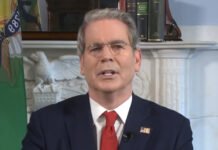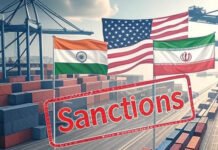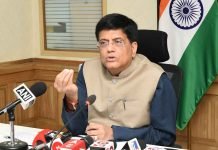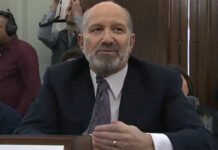The United States has imposed an additional 25% tariff on India’s oil imports from Russia, escalating trade tensions between Washington and New Delhi. While US Secretary of State Marco Rubio acknowledged that India is a “very close partner,” he defended the move as necessary to increase pressure on Moscow over the ongoing Ukraine war.
Why the Tariff Was Imposed
Speaking at an event, Rubio explained that the Trump administration is taking concrete steps to hold Russia accountable.
“The President has taken action. For example, additional tariffs have been imposed on India. India is a close partner, but we had to take this step on their oil purchases from Russia,” Rubio said.
This new measure raises the total US tariff burden on India to 50%, the highest in the world. Rubio also pointed out that a bill introduced by Senator Lindsey Graham calls for further taxes on India and China for continuing to import Russian oil and gas.
Pressure on Europe to Cut Russian Energy Imports
The US has not limited its pressure to India alone. Rubio revealed that President Trump has also warned European allies against purchasing Russian energy.
“Buying energy from Russia is like directly fueling war,” Rubio emphasized.
He noted that after the Trump-Putin summit in Alaska, European leaders visited Washington to discuss Ukraine’s future security guarantees. According to Rubio, significant progress has been achieved, which will play a crucial role in shaping any peace negotiations to end the Ukraine conflict.
Rubio Meets Indian Foreign Minister Jaishankar
On the sidelines of the United Nations General Assembly (UNGA) in New York, Rubio held a one-hour meeting with Indian Foreign Minister S. Jaishankar.
Jaishankar later wrote on social media platform X:
“It was nice to meet Rubio in New York. Our conversation covered bilateral and international issues. We will remain engaged to pursue progress on priority topics.”
The meeting comes amid growing strains in India-US ties over trade, energy policies, and tariffs, with Washington pressing New Delhi to reduce its dependence on Russian oil.
Strategic Importance of India-US Relations
Despite disagreements, the US State Department issued a statement reaffirming that India-US relations remain extremely important. The two sides discussed:
Trade and defense cooperation
Energy security and clean energy transition
Pharmaceuticals and critical minerals
Strengthening the Quad partnership to ensure freedom and stability in the Indo-Pacific
Both nations agreed to continue dialogue and cooperation to manage areas of friction while advancing shared strategic goals.
Rubio Echoes Trump’s Vision of Peace
In a separate interview, Rubio strongly defended President Trump’s foreign policy record. He claimed that no other leader has worked as extensively for peace as Trump, citing recent US efforts to mediate conflicts.
According to Rubio, Trump played a key role in addressing tensions in:
Congo and Rwanda
Azerbaijan and Armenia
Thailand and Cambodia
India and Pakistan
Rubio argued that these diplomatic engagements highlight Trump’s proactive approach to global conflict resolution, even as he adopts tough trade measures to weaken Russia’s war financing.
Conclusion
The decision to impose a 25% tariff on India’s Russian oil imports reflects the US administration’s strategy of applying economic pressure on Moscow while balancing ties with New Delhi. Although India is recognized as a close strategic partner, Washington is making it clear that energy trade with Russia carries consequences.
As both nations continue to engage at the highest levels — including recent talks between Rubio and Jaishankar — the challenge will be to maintain strong India-US relations while navigating tensions over tariffs, energy security, and the broader geopolitical fallout of the Ukraine war.
















